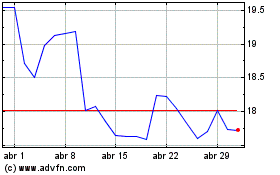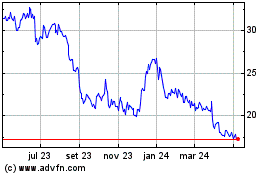This more gradual start to flu season could
foreshadow a return to pre-pandemic patterns of flu activity;
Walgreens recommends getting vaccinated now.
Walgreens launched the 2023-2024 Walgreens Flu Index today to
help communities track flu activity in their area and serve as an
important reminder to take preventive measures, including an annual
flu shot. Walgreens has produced this online, interactive tool for
10 flu seasons to show trends in flu activity week-over-week.
This press release features multimedia. View
the full release here:
https://www.businesswire.com/news/home/20231019216442/en/
Walgreens launched the 2023-2024
Walgreens Flu Index today to help communities track flu activity in
their area and serve as an important reminder to take preventive
measures, including an annual flu shot. (Graphic: Business
Wire)
The Walgreens Flu Index shows that, to date, overall flu
activity is 66% lower compared to the start of the 2022-2023 flu
season, with activity increasing 13% over the past week. During the
week of Oct. 9, flu activity was the highest in Puerto Rico, Hawaii
and Louisiana. Several areas in the southern U.S., including
Harlingen-Weslaco-Brownsville- McAllen, Texas, Lafayette,
Louisiana, and Beaumont-Port Arthur, Texas, were designated the top
markets with the most widespread flu activity so far.
“After several atypical flu seasons, this year’s Flu Index is
showing a more gradual ramp-up of flu activity closer to the
pre-COVID norm,” said Kevin Ban, MD, Chief Medical Officer,
Walgreens. “While it’s early days and flu season is always
unpredictable, our historical data suggest this could be a return
to a typical two-wave flu season where activity starts to peak in
December and reaches its highest point in February, rather than the
single peak we saw last year, which was earlier but lower than the
norm.”
Despite the unusual patterns of flu activity last season, the
virus still had a major impact on communities and the healthcare
system, driving a similar level of illnesses, hospitalizations and
deaths as in pre-pandemic years and contributing to the
‘tripledemic’ of flu, COVID-19 and RSV in the U.S. Getting a flu
shot remains the best way to protect against the virus, and
potentially serious outcomes of influenza. The annual flu shot has
been shown to reduce the risk of having to go to the doctor with
flu by as much as 40% to 60%.1
The Centers for Disease Control and Prevention (CDC) recommends
that everyone 6 months and older get a flu vaccine by the end of
October.2 However, if individuals cannot get vaccinated until
later, the CDC recommends still getting the flu shot because
significant flu activity can continue through May.3 It takes about
two weeks after receiving the vaccine for antibodies to develop in
the body and provide protection against the flu.
“It’s just as important as ever to get your annual flu shot, and
now is the time to do it,” said Dr. Ban. “With COVID-19 surging,
pandemic precautions continuing to ease, and people gathering in
person more frequently this fall and winter, keeping up with all
CDC-recommended immunizations is the best way to keep you and your
loved ones protected as we head into the holidays and peak flu
season. As our pharmacy teams are working tirelessly to serve our
communities, Walgreens makes it easy for the whole family to get
annual flu shots, the updated COVID-19 vaccine and the RSV vaccine
for those eligible, all in one visit.”
Flu and COVID-19 vaccines are available at no cost to patients
with most insurance or government assistance. To schedule a
vaccination appointment, visit Walgreens.com/ScheduleVaccine, use
the Walgreens app or call 1-800-WALGREENS.
Walgreens also offers a variety of convenient, low-cost testing
and treatment options to simplify the path to recovery for
individuals experiencing respiratory symptoms, including a rapid 2
results in 1 test for COVID-19 and influenza A and B that are now
available at most locations nationwide. To learn more, visit
Walgreens.com/Testing, use the Walgreens app or call
1-800-WALGREENS.
Top 10 DMAs with Highest Flu Activity
1. Harlingen-Weslaco-Brownsville-McAllen,
Texas
2. Lafayette, La.
3. Beaumont-Port Arthur, Texas
4. Puerto Rico
5. New Orleans, La.
6. Honolulu, Hawaii
7. El Paso, Texas (Las Cruces, N.M.)
8. Columbus-Tupelo-West Point-Houston,
Miss.
9. Corpus Christi, Texas
10. Anchorage, Alaska
Top 10 States and Territories with Highest Flu
Activity
1. Puerto Rico
2. Hawaii
3. Louisiana
4. Arkansas
5. Texas
6. Mississippi
7. Florida
8. Nevada
9. Alabama
10. Tennessee
About the Walgreens Flu Index®
The Walgreens Flu Index® is an online, interactive tool that
ranks the top markets and states for flu activity in the United
States, including Puerto Rico, and the top markets and states
showing the largest increases in flu activity week-over-week. The
index is updated weekly each Tuesday and is available through an
online interactive map linked here. Users can search by market or
state to see where their geographic area ranks for flu activity in
any given week and how current flu activity compares to last
season. Through the time-lapse feature of the Walgreens Flu Index®,
users can see how current flu activity compares to activity from
last season.
Every week, Walgreens tracks the incremental change of antiviral
medications used to treat influenza across thousands of Walgreens
and Duane Reade locations nationwide to create the Walgreens Flu
Index®. Data for the Walgreens Flu Index® is analyzed at state and
geographic market levels to measure absolute impact and incremental
change of antiviral medications on a per store average basis and
does not include markets in which Walgreens has fewer than 10
retail locations.
The index is not intended to illustrate flu severity, but
rather, based on this methodology, to show which populations are
experiencing the highest incidence of influenza within the United
States and Puerto Rico each week. Low-high rankings are designated
based on a normal flu season, defined by an average of the last
five flu seasons nationwide. For example, red regions on the
Walgreens Flu Index® map indicates a much higher than normal flu
season, while green regions indicate a much lower than normal flu
season.
About Walgreens
Walgreens (www.walgreens.com) is included in the U.S. Retail
Pharmacy and U.S. Healthcare segments of Walgreens Boots Alliance,
Inc. (Nasdaq: WBA), an integrated healthcare, pharmacy and retail
leader with a 170-year heritage of caring for communities. WBA’s
purpose is to create more joyful lives through better health.
Operating nearly 9,000 retail locations across America, Puerto Rico
and the U.S. Virgin Islands, Walgreens is proud to be a
neighborhood health destination serving nearly 10 million customers
each day. Walgreens pharmacists play a critical role in the U.S.
healthcare system by providing a wide range of pharmacy and
healthcare services, including those that drive equitable access to
care for the nation’s underserved populations. To best meet the
needs of customers and patients, Walgreens offers a true
omnichannel experience, with fully integrated physical and digital
platforms supported by the latest technology to deliver
high-quality products and services in communities nationwide.
1 Centers for Disease Control and Prevention. “Vaccine
Effectiveness: How Well Do Flu Vaccines Work?” February 28, 2023.
https://www.cdc.gov/flu/vaccines-work/vaccineeffect.htm
2 Centers for Disease Control and Prevention. “Who Needs a Flu
Vaccine.” August 25, 2023.
https://www.cdc.gov/flu/prevent/vaccinations.htm
3 Centers for Disease Control and Prevention. “Flu Season.”
September 20, 2022.
https://www.cdc.gov/flu/about/season/index.html
View source
version on businesswire.com: https://www.businesswire.com/news/home/20231019216442/en/
Stephanie Corcilius Walgreens Media Relations
media@walgreens.com
Walgreens Boots Alliance (NASDAQ:WBA)
Gráfico Histórico do Ativo
De Nov 2024 até Dez 2024

Walgreens Boots Alliance (NASDAQ:WBA)
Gráfico Histórico do Ativo
De Dez 2023 até Dez 2024
